
"Jerry sending shells over. Deathly chatter of machine-guns. Rumbling of falling buildings.” Major Roy Durnford, padre of the Canadian Seaforth Highlanders, was writing his diary in a church in what remained of Ortona, a small town midway down Italy’s Adriatic coast. Ortona was by then a smashed wreck, as was the countryside immediately to the south. Just a few weeks earlier, this had been a lush region of vineyards and peaceful olive groves. Now it was a hell of churned-up mud, vines and tree stumps punctuated by scores of dead, bloated bodies, shattered buildings, grotesquely torn metal and blackened tank hulks. It was Christmas Day, 1943.
Durnford recorded those observations more than three months after Allied forces had launched their invasion of Italy with landings in Calabria and at Salerno, on the west coast, south-east of Naples. They had confidently expected to be masters of Rome by now, and for the front line to be at least 50 miles north of the capital. Yet even adjusted ambitions had not been met. Two days later, on 27 December, the wreck of Ortona would finally be taken – still some way south of Pescara, the revised year-end target for the British Eighth Army.
Esta historia es de la edición November 2023 de BBC History UK.
Comience su prueba gratuita de Magzter GOLD de 7 días para acceder a miles de historias premium seleccionadas y a más de 9,000 revistas y periódicos.
Ya eres suscriptor ? Conectar
Esta historia es de la edición November 2023 de BBC History UK.
Comience su prueba gratuita de Magzter GOLD de 7 días para acceder a miles de historias premium seleccionadas y a más de 9,000 revistas y periódicos.
Ya eres suscriptor? Conectar
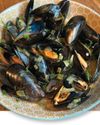
Viking mussels
ELEANOR BARNETT digs into archaeological research to recreate a Viking-cum-AngloSaxon seafood dish from medieval York
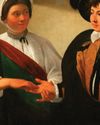
Fingers, frog's and fairies
Fortune telling was all the rage in the 16th and 17th centuries, and practitioners would stop at nothing to tap in to the supernatural. Martha McGill tells a story of Highland seers, tarot cards and encounters with the spirit world

Nothing matches being with Alexander the Great on foot in the Hindu Kush
AT OUR LITTLE FILM COMPANY, MAYA VISION, we recently took the decision to digitise all of the rushes of our key films so that we could dispose of hundreds of boxes of tapes that had been kept in storage, throwing out stuff we thought we would never need again.

Library of the dead
Highgate Cemetery, created as a fashionable resting place for wealthy Victorian dead, is a veritable who's who of London's great and good. PETER ROSS roams the avenues of this most atmospheric necropolis
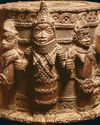
Slavery, exploitation and racism. These tragedies have long dominated histories of Africa. But there's another way to tell this story. And it's one that puts Africans right at the centre of their continent's extraordinarily rich and vibrant past
An 1414, in the Chinese city of Nanjing, a giraffe caused a stir. Amid a crowd of shocked, noble spectators, an official, leading the creature via a rope tied round its face, presented it to China's Yongle emperor. His officials said it was a qilin - an auspicious unicorn - which his sage governance had made appear.

England's forgotten hero
When the Hundred Years' War was reaching a climax, one man was fighting tenaciously to secure the English claim to the French crown. So why, asks Joanna Arman, is Henry V's formidable brother, John, Duke of Bedford, not better known?
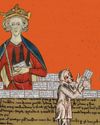
HENRY III AND THE MAGNA CARTA THAT MATTERED
King John's sealing of a charter at Runnymede in 1215 is one of the most feted moments of the Middle Ages. Yet, writes David Carpenter, it was the charter issued by his son 10 years later that became fundamental to England's history

Gutenberg publishes a pioneering new book
‘The printing press triggers an information revolution
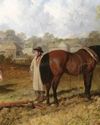
How empire ruptured rural Britain
We know that enslaved Africans and their descendants suffered in the distant colonies of empire. But, as Corinne Fowler explains, the colonial system also had dire impacts on people in the countryside of the 'motherland'

"I FELT VERY ALONE IN A WORLD GONE HORRIBLY MAD"
It was a moment of possibilities, dislocation and dread. Dan Todman tells the story of the 1.5 million urban Britons evacuated to the countryside at the start of the Second World War